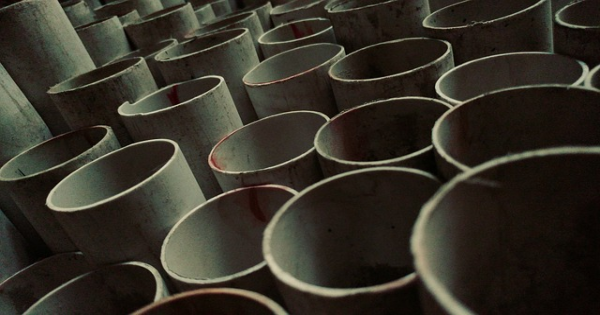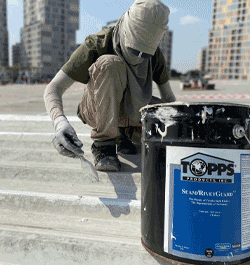UP TO THE MINUTE
EPA May Designate PVC as Hazardous Waste

By Trent Cotney, Adams and Reese, LLP.
If the Environmental Protection Agency grants the Center for Biological Diversity's current petition, discarded items containing polyvinyl chloride (PVC) could be deemed hazardous waste
If you have been on a construction site lately, you have likely come across PVC pipes. You may have also walked around some traffic cones made of PVC or wet down some cement with a PVC hose. In the roofing industry, PVC roof systems are a common low slope roof system. However, if the U.S. Environmental Protection Agency (EPA) grants a current petition, discarded items containing polyvinyl chloride (PVC) could be deemed hazardous waste.
For this issue, the EPA is working under the Resource Conservation and Recovery Act (RCRA), which sets regulations for generating, treating, transporting, and disposing of items considered to be hazardous waste.
How this question came about
In 2014, the Center for Biological Diversity (CBD) filed a petition with the EPA. CBD asserted that many common products are made from PVC, which is harmful to human health and has been labeled a human carcinogen by the EPA. CBD also contended that discarded PVC products are dangerous to the environment because as they age and deteriorate, they leach vinyl chloride and other chemicals into the surroundings, such as at public solid waste landfills. The petition implored the EPA to consider designating discarded PVC and PVC products as hazardous waste. And that would require the EPA to revise related solid waste guidelines.
It is important to note that the petition requests the hazardous waste designation be generated at the manufacturing stage. But it also suggests that finished materials containing PVC be considered hazardous waste when discarded. This designation could impact a number of industries and companies not usually regulated by the RCRA. For example, many households throw away PVC products in their everyday trash. So do construction contractors and retail stores.
Where we are now
Initially, the EPA did not respond to CBD’s petition. So, in 2019, CBD filed an action against the EPA, stating that the agency had failed its duty to respond. In May 2022, the EPA announced it was addressing the petition by entering into a proposed consent decree with CBD. Per the proposed consent decree, the EPA must make a tentative decision on the PVC designation by January 20, 2023. Following that, it must make a final determination by April 12, 2024.
It is hard to say if the EPA will grant CBD’s petition and decide to label discarded PVC materials as hazardous waste or not. However, the EPA may very well cater to the current environmental and regulatory climate. This outcome is especially possible given the federal government’s desire to reduce the overall use of plastic.
Advice for roofing and other industries
Companies that commonly use and dispose of PVC products should take this issue seriously. As you know, PVC is used for many commercial products, including food packaging, school supplies, and children’s toys. So when households discard these items, new policies and protocols will need to be in place. In addition, some of these materials are also recycled, so recycling processes will have to be updated.
In the construction industry, PVC is used in wiring conduits, piping, roofing, and other materials. These are usually disposed of in landfills. So if they are labeled as hazardous waste, that will impact new construction, demolition, and other aspects of the construction projects by requiring heightened PPE and hazardous waste disposal.
The retail industry will also be affected when customers return PVC products. And utility companies will need to reconsider leaving old piping in place when they upgrade a line.
If EPA grants the petition, it will need to create administrative recordkeeping for generating, managing, and disposing of PVC products. Therefore, companies and industries must be ready to receive and respond to information requests from the EPA. For example, they may need to supply human health and ecological data related to PVC exposure and degradation.
For now, it is best to keep an eye on this issue. With a tentative decision coming in January 2023, contractors and manufacturers should discuss the issues with their federal legislators as well as turn to industry lobbyists to assist in advocacy. If you would like more information on lobbying the EPA on these issues, please feel free to reach out to the author Trent Cotney at trent.cotney@arlaw.com
About Trent Cotney
Trent Cotney is a partner and Construction Practice Group Leader at the law firm of Adams and Reese LLP and NRCA General Counsel. For more information, reach out to Trent at trent.cotney@arlaw.com.
The information contained in this article is for general educational information only. This information does not constitute legal advice, is not intended to constitute legal advice, nor should it be relied upon as legal advice for your specific factual pattern or situation.



















Comments
Leave a Reply
Have an account? Login to leave a comment!
Sign In